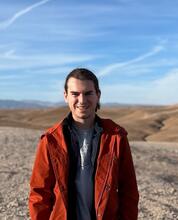Oliver Lucier
Oliver Lucier is a PhD candidate in the History of Science & Medicine Program at Yale University. As a historian of science and environmental historian, his research focuses on the co-production of climate science and global environmental management during the 20th century. In his dissertation, “The Terraformers: How Bioclimatic Scientists Revolutionized Global Land Use, 1900–2000,” Oliver argues that bioclimatic classifications—which include commonplace ideas like ‘deserts’ or ‘rainforests’ to more complex correlations between temperature, rainfall, and local ecology—operated as powerful, normative models for reshaping land use.
His recent article based on this research, entitled “Climate Conscious: Holdridge Life Zones and Caribbean Commodities,” was published in Isis and received the History of Science Society’s Nathan Reingold Prize for best essay on the history of science by a graduate student. At Yale he has designed and taught an upper-level undergraduate history seminar on the intertwined histories of colonialism, capitalism, and climate science, served as a McDougal Teaching Fellow, and organized an interdisciplinary workshop on the Interactions of Climate and Life.
Before arriving at Yale, Oliver graduated from Rice University with a BA in History with Honors and a BS in Earth Science and from Durham University with an MA in Geography with Distinction. He welcomes inquiries about the history of environmental science or about the HSHM program at Yale.
